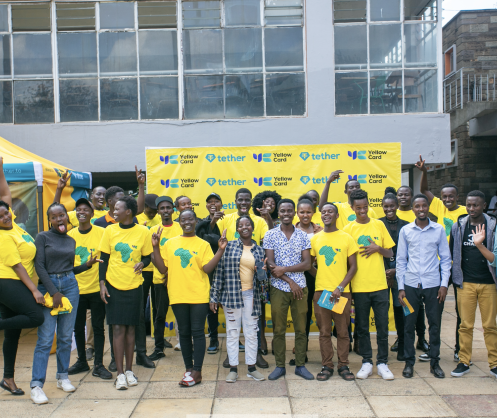IBM (NYSE: IBM) has launched IBM watsonx, a new AI and data platform that will enable enterprises to scale and accelerate the impact of the most advanced AI with trusted data.
A new report from the IBM Institute for Business Value, titled Seven Bets, shares seven trends impacting business today and describes the seven bets worth making to enhance their business, including insights on why businesses should adopt an “AI-first” mindset and how leaders can most effectively capitalize on AI’s opportunities now and in the future, as well as manage the enhanced risks across their organizations.
“With the development of foundation models, AI for business is more powerful than ever,” said Arvind Krishna, IBM Chairman and CEO. “Foundation models make deploying AI significantly more scalable, affordable, and efficient. We built IBM watsonx for the needs of enterprises, so that clients can be more than just users, they can become AI advantaged. With IBM watsonx, clients can quickly train and deploy custom AI capabilities across their entire business, all while retaining full control of their data.”
The company has also announced further planned advancements, including a GPU-as-a-service infrastructure offering designed to support AI-intensive workloads, an AI-powered dashboard to measure, track, manage, and help report on cloud carbon emissions, and a new practice for watsonx and generative AI from IBM Consulting that will support client deployment of AI.
With watsonx, IBM is offering an AI development studio with access to IBM-curated and trained foundation models and open-source models, access to a data store to enable the gathering and cleansing of training and tuning data, and a toolkit for governance of AI into the hands of businesses that will provide a seamless end-to-end AI workflow that will make AI easier to adapt and scale.
“With the launch of the African Continental Free Trade Area (AfCTA), African organizations are seizing the opportunities and are increasingly looking to be in multiple markets,” said Julia Carvalho, General Manager of IBM Africa Growth Markets. “A scalable and trusted AI for business platform such as IBM watsonx can play a crucial role. It can ensure that regional bodies and governments create central trade information portals and cross-border payment infrastructure to help increase trade for inclusive and sustainable development in the region.”
Clients will have access to the toolset, technology, infrastructure, and consulting expertise to build their own — or fine-tune and adapt available AI models — on their own data and deploy them at scale in a more trustworthy and open environment to drive business success. Competitive differentiation and unique business value will be able to be increasingly derived from how adaptable an AI model can be to an enterprise’s unique data and domain knowledge.
The IBM watsonx platform consists of three unique product sets to address these needs:IBM watsonx.ai: A next-generation enterprise studio, expected to be generally available in July 2023, for AI builders to train, test, tune, and deploy both traditional machine learning and new generative AI capabilities powered by foundation models through an open and intuitive user interface.
IBM watsonx.data: A fit-for-purpose data store built on open lakehouse architecture that is optimized for governed data and AI workloads, supported by querying, governance, and open data formats to access and share data. The solution is expected to be generally available in July 2023 and:
IBM watsonx.governance: An AI governance toolkit to enable trusted AI workflows. The solution, expected to be generally available later this year:
With the watsonx platform, clients are enabled to meet the needs of their organization in five key areas of their business: interacting and conversing with customers and employees; automating business workflows and internal processes; automating IT processes; protecting against threats; and tackling sustainability goals.
IBM also plans to infuse watsonix.ai foundation models throughout all its major software products going forward, for example: Watson Code Assistant: A solution, expected later this year, that taps generative AI to allow developers to generate code with a straightforward English language command.
AIOps Insights: AI Operations (AIOps) capabilities enhanced with foundation models expected for code and NLP to provide greater visibility into performance across IT environments, helping IT operations (ITOps) managers and Site Reliability Engineers (SREs) resolve incidents in a more expedient and cost-efficient way.
Additionally, IBM has announced several additional offerings to help drive AI adoption, including: New GPU offering on IBM Cloud: Addressing the global need for foundation models, IBM is announcing new GPU offerings on IBM Cloud, an AI-tailored infrastructure designed to support enterprise compute-intensive workloads. Later this year, IBM is expected to offer full stack high-performance, flexible, AI-optimized infrastructure, delivered as a service on IBM Cloud, for both training and serving foundation models.
IBM Consulting Center of Excellence for Generative AI: IBM Consulting announces a Center of Excellence for generative AI with over 1,000 generative AI experts and plans to build a watsonx-focused practice which will actively build and deploy watsonx for clients. IBM Consulting has completed dozens of client engagements infusing generative AI with IBM Watson and a portfolio of ecosystem partners through its proven IBM Garage method.
IBM Cloud Carbon Calculator: An AI-informed dashboard to enable clients to measure, track, manage and help report their carbon emissions associated with their hybrid multi-cloud journey. Based on technology from IBM Research, IBM Cloud Carbon Calculator is expected to be generally available later this year. The dashboard complements IBM’s existing sustainability solutions with a comprehensive portfolio of technology and expertise, including the IBM Envizi ESG Suite, IBM Turbonomic, IBM Planning Analytics and IBM LinuxONE, that help organizations accelerate their sustainability and business objectives.



